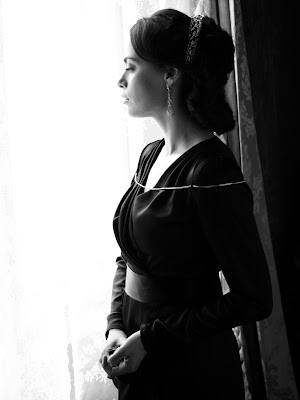We often hear that "theater people" are crazy but, really, several of the characters found in BEFORE YOU KNOW IT just about reach the point of insufferable.
This wobbly concoction, about a family of theater folk who live above the small New York City theater they also own, begins with Mandy Patinkin playing the most insufferable of the entire bunch, a playwright who won't allow a word of his precious verbiage to ever be changed. When he departs early from the film, you'll probably breathe a sigh of relief. Hold on, though; things don't get much better.
The film stars a pair of actresses -- Hannah Pearl Utt and Jen Tullock, shown above, left and right respectively -- doing double and triple duty here as director (Ms Utt) and screenwriters Ms Tullock and Utt again). Utt plays Rachel, the supposedly dowdy but smart sister who of course holds the family together, while Tullock, as Jackie, who is dumb, blousy as just about as insufferable as her dad. She also is the mother of a near-shockingly normal daughter named Dodge (played by Oona Yaffe, below), who, as the single, vaguely non-insane family member, pretty much steals what's left of this near-intolerable movie.
Ms Utt plays Rachel using almost a single hangdog expression. It has its charm, for awhile, but come on now. However, even this is better than Ms Tullock's loud, crazy, mostly ridiculous outbursts that begin to defy credulity early on and only grow worse as the movie progresses. I swear you'll soon want to throttle her. How this family could leave Dodge in the care of an accountant they may not even know (of course, he turns out to be a fabulous, standup guy) is one of those idiot wonders of present-day screenwriting (and, no, don't tell me this is screwball comedy time).
Before You Know It posits that the siblings' mom, long thought dead, is alive and well and starring in some famous TV soap opera. That she is played by the fine actress Judith Light (above) ought to offer hope. But, no: Ms Light has rarely been seen to less advantage.
Content yourself with what you can and be grateful that your own mother was probably a hell of a lot better than anything you see or hear here. From 1091 and running 92 minutes (my spouse gave up at the point of 43, but TrustMovies soldiered on), Before You Know It hit "early purchase" EST on home video last week and will be available via VOD tomorrow, Tuesday, December 10 -- for purchase and/or rental.
























































